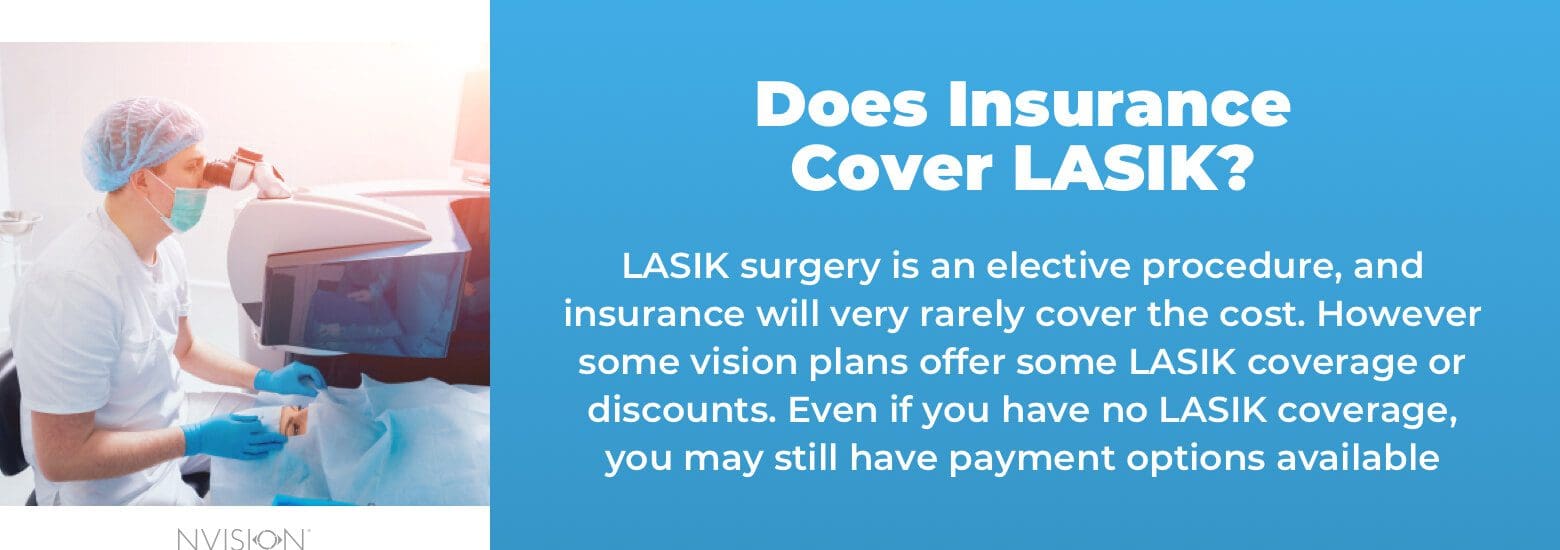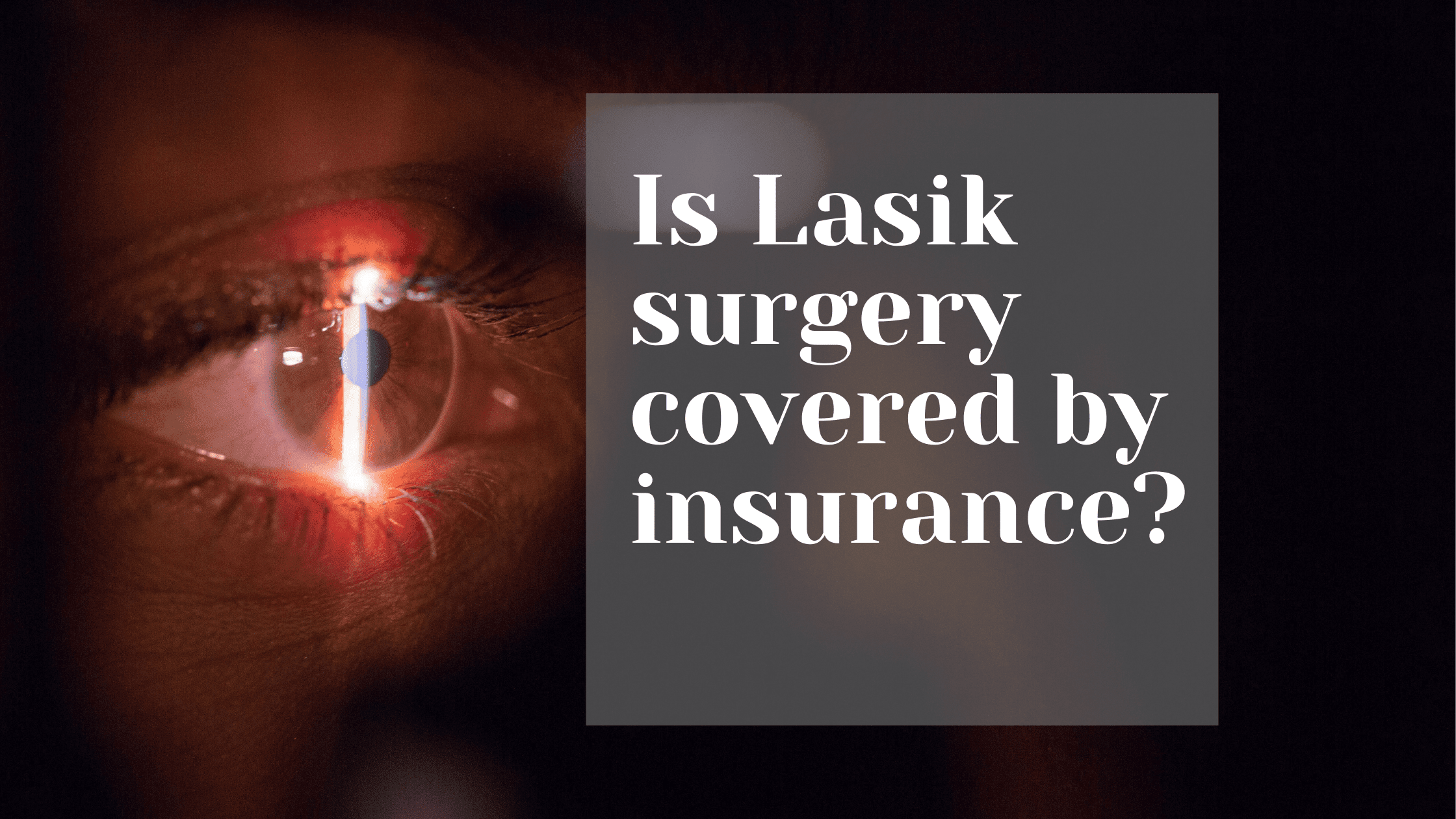Introduction
LASIK eye surgery is a life-changing procedure for those who want to ditch their glasses or contact lenses. However, one of the biggest questions people ask is: Does insurance cover LASIK?
Since LASIK is considered an elective procedure, most insurance companies do not cover it. However, some exceptions exist, and there are alternative ways to reduce the cost of the surgery.
In this guide, we will explore insurance coverage for LASIK, situations where it may be covered, alternative ways to afford the procedure, and tips on finding the best financial options.

What Is LASIK Eye Surgery?
LASIK (Laser-Assisted In Situ Keratomileusis) is a laser-based eye surgery that corrects vision problems such as: Does insurance cover LASIK.
- Myopia (Nearsightedness)
- Hyperopia (Farsightedness)
- Astigmatism
During the procedure, a surgeon reshapes the cornea to improve the way light is focused on the retina. This results in sharper vision and eliminates or reduces the need for glasses or contact lenses.
Why Doesn’t Insurance Typically Cover LASIK?
Most insurance providers classify LASIK as an elective or cosmetic procedure rather than a medically necessary one. Since glasses and contact lenses are considered adequate solutions, insurance companies often exclude LASIK from standard health or vision insurance policies.
Exceptions: When Does Insurance Cover LASIK?
Though LASIK is usually not covered, some exceptions exist where insurance providers might partially or fully cover the procedure: Does insurance cover LASIK.
1. Medical Necessity
If LASIK is required due to a medical condition or accident that prevents the use of glasses or contacts, some insurance plans may cover it. Examples include:
- Severe refractive errors that cannot be corrected with glasses
- Eye injuries causing corneal damage
- Vision loss due to a disease where LASIK is a recommended solution
2. Occupational Requirements
Certain jobs require perfect unaided vision, and some employers or insurance plans may cover LASIK if it is necessary for employment. This applies to:
- Military personnel
- Pilots
- Police officers
- Firefighters
Some government agencies and private companies offer special LASIK insurance benefits to employees in these fields.
3. Vision Insurance Plans with LASIK Discounts
Some vision insurance plans don’t fully cover LASIK but provide discounts on the procedure through partnered LASIK providers. Examples include:
- VSP Vision Care
- EyeMed
- Davis Vision
These plans often provide 15% to 50% discounts on LASIK procedures if performed by their network providers. Does insurance cover LASIK.

How Much Does LASIK Cost?
The average cost of LASIK surgery in the U.S. is around $2,200 per eye or $4,400 for both eyes. However, costs can vary based on:
- The surgeon’s experience
- The type of LASIK technology used
- The geographic location of the clinic
Since most insurance plans do not cover LASIK, it’s essential to explore affordable financing options.
How to Afford LASIK Without Insurance?
If insurance doesn’t cover LASIK, you can still make the procedure more affordable through the following methods: Does insurance cover LASIK/
1. Health Savings Accounts (HSA) or Flexible Spending Accounts (FSA)
Both HSAs and FSAs allow you to use pre-tax dollars to pay for medical expenses, including LASIK.
- HSA (Health Savings Account) – If you have a high-deductible health plan (HDHP), you can contribute up to $3,650 per year (2023 limit) to your HSA for LASIK expenses.
- FSA (Flexible Spending Account) – Allows employees to set aside up to $3,050 per year (2023 limit) for medical expenses, including LASIK.
Since these contributions are tax-free, you can save up to 30% on LASIK costs.
2. LASIK Financing Plans
Many LASIK providers offer 0% interest financing plans or monthly installment options to make the surgery more affordable. Some popular financing options include:
- CareCredit
- Alphaeon Credit
- LASIK provider payment plans
These financing plans let you spread out the payments over 6 to 24 months, making LASIK more budget-friendly.
3. Employer Benefits and Discounts
Some employers offer LASIK discounts or reimbursement as part of their employee health benefits. If your employer provides vision insurance, check whether LASIK is included as part of your coverage.
4. LASIK Discounts & Promotions
Certain LASIK centers offer seasonal discounts or group discounts for families and friends who undergo surgery together. You can also check for special deals and promotions at reputable LASIK clinics. Does insurance cover LASIK.

Steps to Check Your LASIK Insurance Coverage
Want to know if your insurance will cover LASIK? Follow these steps: Does insurance cover LASIK.
Step 1: Review Your Insurance Policy
- Check your health or vision insurance policy for LASIK coverage details.
- Look for terms like “vision correction surgery”, “refractive surgery benefits”, or “LASIK discounts.”
Step 2: Contact Your Insurance Provider
- Call your insurance company’s customer service and ask about LASIK coverage.
- Ask about possible exceptions, discounts, or employer-sponsored LASIK plans.
Step 3: Speak with a LASIK Surgeon
- Book a free LASIK consultation with a reputable eye surgeon.
- Some LASIK centers have insurance specialists who can help determine your eligibility for coverage.
Pros & Cons of LASIK Insurance Coverage
| Pros | Cons |
|---|---|
| Some vision insurance plans offer discounts on LASIK | Most insurance providers classify LASIK as elective |
| Employers in certain industries may subsidize the cost | Full coverage is rare unless LASIK is medically necessary |
| HSA & FSA accounts can help reduce costs with pre-tax dollars | LASIK can cost $4,000+ out of pocket |
| Military & law enforcement personnel may get coverage benefits | Alternative financing is needed for most individuals |
Final Thoughts
LASIK is an excellent option for achieving permanent vision correction, but most insurance plans do not cover the procedure since it is considered elective. However, by exploring alternative financing, employer benefits, and vision insurance discounts, you can still make LASIK an affordable reality. Does insurance cover LASIK.
Before undergoing LASIK, make sure to check with your insurance provider and explore HSA, FSA, or financing options to help reduce costs.
Would you like assistance in finding affordable LASIK options near you? Drop a comment below or reach out to LASIK providers for more details!
Frequently Asked Questions (FAQs)
1. Does any insurance cover LASIK eye surgery?
Most standard health insurance plans do not cover LASIK since it’s considered an elective procedure. However, some vision insurance plans provide discounts.
2. Can I use my HSA or FSA for LASIK?
Yes! HSA and FSA funds can be used to pay for LASIK since it qualifies as a medical expense.
3. How much does LASIK cost without insurance?
LASIK costs around $2,200 per eye or $4,400 for both eyes, depending on the surgeon, location, and technology used.
4. Are there financing options for LASIK?
Yes, many LASIK centers offer 0% interest financing or monthly installment plans to make LASIK more affordable.
5. How do I find out if my insurance offers LASIK discounts?
Call your insurance provider and ask if they provide LASIK discounts through network providers. VISIT – puzoy.com











